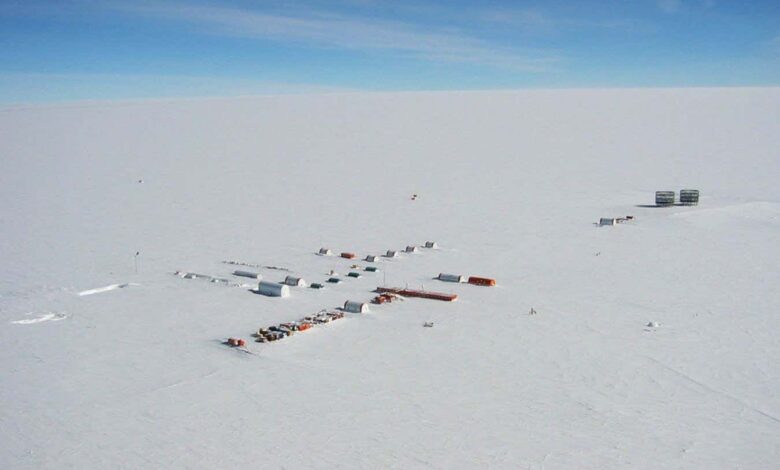Science
-

Radical photon idea could rewrite standard model of particle physics
Photons could upend the standard model of particle physics Eduard Muzhevskyi/Alamy If photons possess more quantum states than expected, it would overhaul our understanding of all particle physics – and now physicists have identified a way to test this radical idea in an experiment. Certain elementary particles have a property called spin. For particles of light, or photons, spin can…
Read More » -

Shingles vaccine linked with lower risk of many common heart problems
A shingles vaccine seems to provide additional benefits Cavan Images / Alamy Vaccination against herpes zoster, better known as shingles, not only helps prevent this painful infection; it also curbs the risk of cardiovascular problems. A new observational study of more than a million people shows that those who received a single injection of the shingles vaccine Zostavax were 26…
Read More » -

US plans massive health database to study autism – will it work?
US Health and Human Services Secretary Robert F Kennedy, Jr Tom Williams/CQ-Roll Call, Inc via Getty Images When Robert F Kennedy Jr took over as head of the US Department of Health and Human Services (HHS) earlier this year, it was clear that identifying causes of autism would be one of his top priorities. Before becoming the country’s highest-ranking public…
Read More » -

Daily pill could replace weight-loss shots like Ozempic and Wegovy
Can weight-loss drugs ditch the needles? Aleksandr Zubkov/Getty Images A daily pill appears to lower blood sugar in people with type 2 diabetes as effectively as injectable drugs like Ozempic and Mounjaro. The medication, called orforglipron, also led to substantial weight loss in clinical trials, meaning it could become a convenient alternative to popular weight-loss drugs. Drugs mimicking the hormone…
Read More » -

Antarctic teams drill oldest ice cores yet in search of climate clues
The camp at Dome C on the East Antarctic plateau where the Beyond EPICA team are drilling ice cores Rob Mulvaney More than a century ago, explorers from several countries raced to reach the globe’s southernmost point, driven by fierce international rivalries. Now, a new race is under way in Antarctica, this time motivated by the need to understand one…
Read More » -

No, the dire wolf has not been brought back from extinction
Romulus and Remus are genetically modified grey wolves Colossal Biosciences A company called Colossal Biosciences says it has revived an extinct species – the dire wolf. “On October 1, 2024, for the first time in human history, Colossal successfully restored a once-eradicated species through the science of de-extinction. After a 10,000+ year absence, our team is proud to return the…
Read More » -

US bridges are at risk of catastrophic ship collisions every few years
In March 2024, a cargo ship smashed into the Francis Scott Key Bridge in Baltimore, Maryland UPI / Alamy One year after a container ship ran into the Francis Scott Key Bridge in Baltimore, Maryland, causing the structure’s collapse, a study has identified other major US bridges that are surprisingly vulnerable to similar catastrophic ship strikes – and their collective…
Read More » -

Floating wood could help us refreeze the Arctic seas
Sea ice coverage in the Arctic has rapidly declined due to global warming Arterra Picture Library / Alamy Modified floating wood could seed the formation of new sea ice in the Arctic, helping counteract the rapid decline of ice coverage due to global warming. The area of the Arctic Ocean covered by ice is shrinking as the climate warms, and…
Read More » -

Most quakes on Mars happen during the summer – and we don’t know why
A fracture on Mars’s surface, taken in January 2018 by the European Space Agency’s Mars Express craft ESA/DLR/FU Berlin Thousands of mysterious quakes on Mars that only happen during summer are unlike any known earthquakes, puzzling scientists. Since NASA’s InSight lander reached Mars in 2018, it has recorded thousands of marsquakes, including some surprisingly large quakes that indicate the planet…
Read More » -

Major ship collision in UK waters sparks fears of toxic chemical leak
Fire and rescue services douse fires after a collision between an oil tanker and a cargo ship carrying sodium cyanide Getty Images Europe Scientists fear a major collision between a cargo ship and a fuel tanker in the UK’s North Sea could cause a huge leak of toxic chemicals into delicate marine habitats, with potentially devastating consequences for local wildlife.…
Read More »
